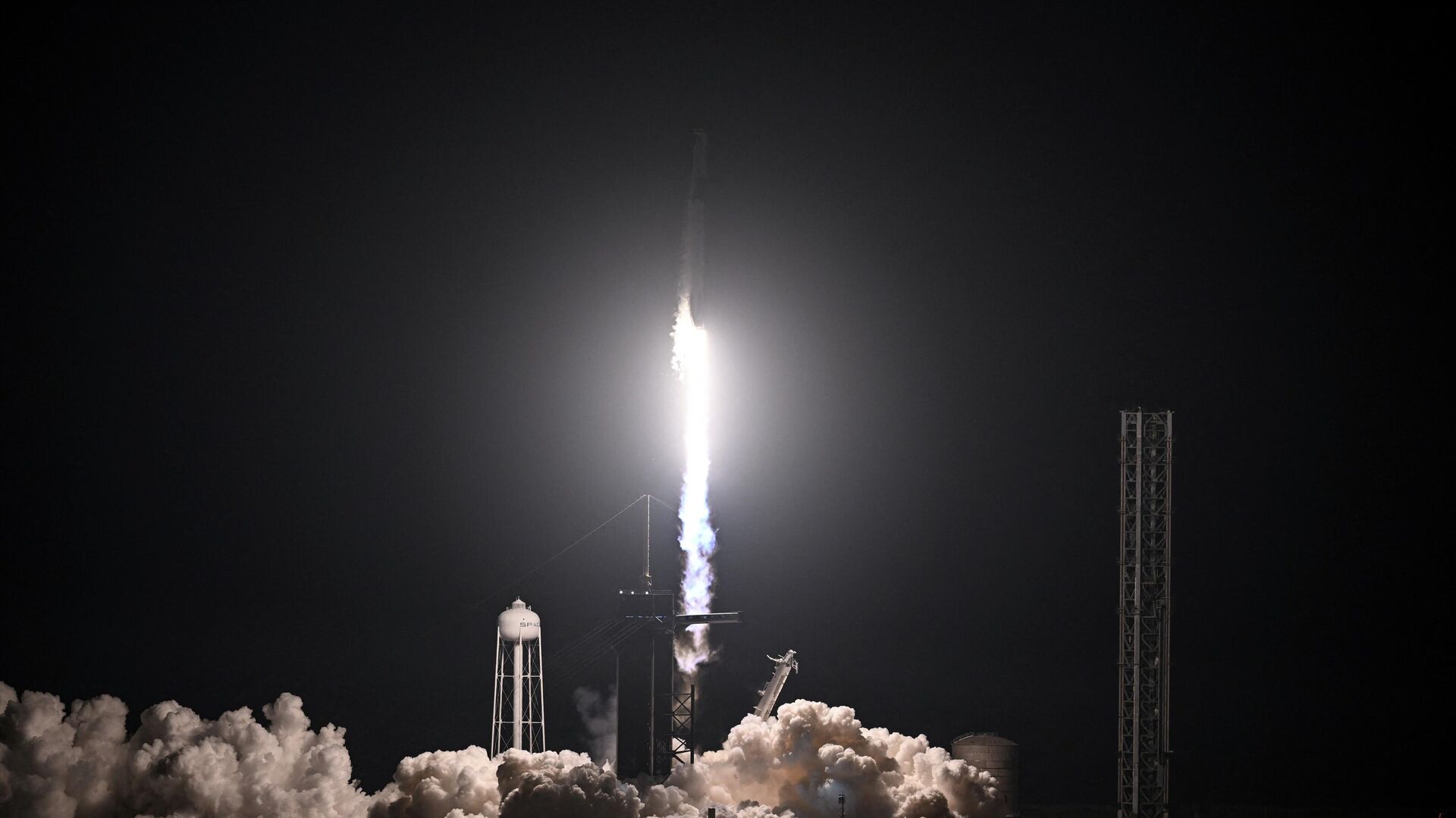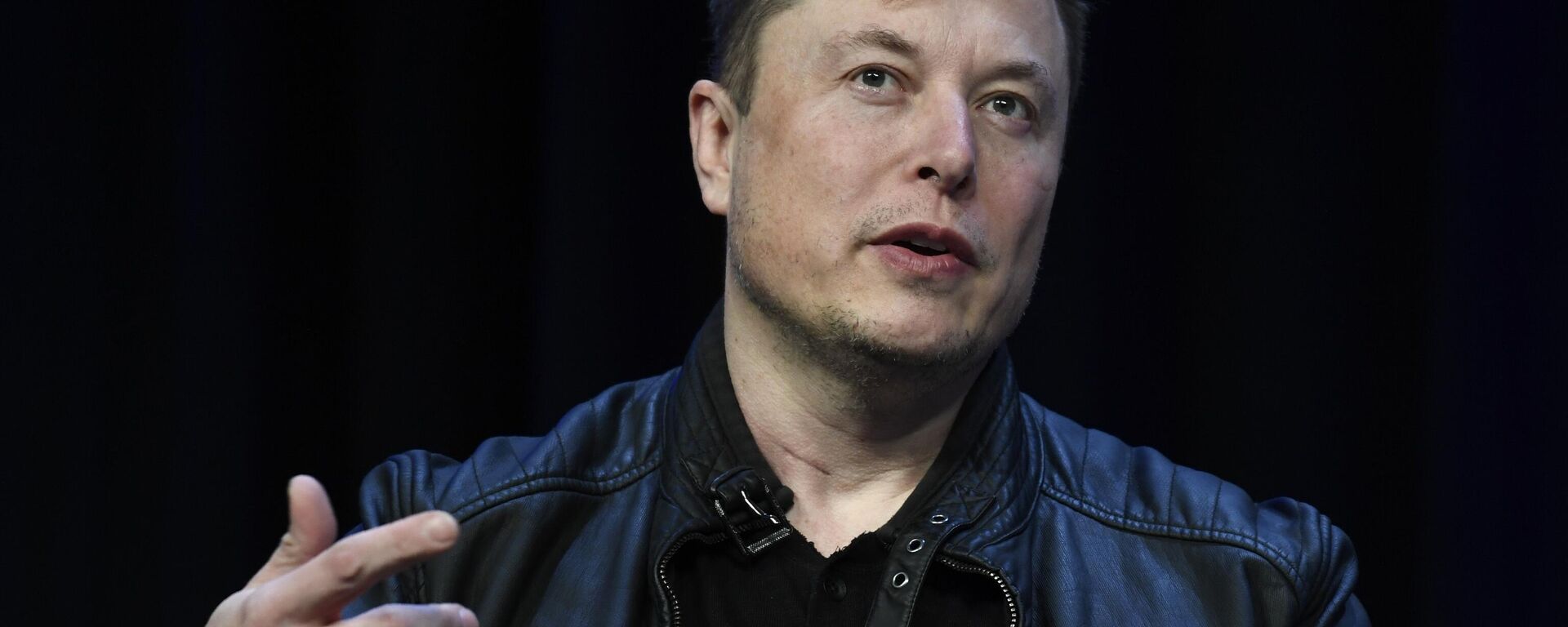https://en.sputniknews.africa/20230727/cosmonaut-borisov-says-wants-to-compare-flying-on-spacexs-crew-dragon-to-soyuz-spacecraft-1060804860.html
Cosmonaut Borisov Says Wants to Compare Flying on SpaceX's Crew Dragon to Soyuz Spacecraft
Cosmonaut Borisov Says Wants to Compare Flying on SpaceX's Crew Dragon to Soyuz Spacecraft
Sputnik Africa
Dragon 2 (also known as Crew Dragon and Dragon V2) is an American reusable manned spacecraft designed by SpaceX, developed by NASA under the Commercial Crew... 27.07.2023, Sputnik Africa
2023-07-27T09:39+0200
2023-07-27T09:39+0200
2023-08-03T10:50+0200
united nations (un)
spacex
russia
space exploration
spacecraft
international space station (iss)
japan
mars
united states (us)
europe
https://cdn1.img.sputniknews.africa/img/07e7/07/1b/1060805435_0:129:3186:1921_1920x0_80_0_0_294340f61261f956955da3bec6d22209.jpg
Russian cosmonaut Konstantin Borisov said in an interview with Sputnik that he is set to fly on the SpaceX spacecraft Crew Dragon for the first time and wants to compare his experience to flying on the Russian Soyuz spacecraft. The Russian cosmonaut explained that he is flying to the International Space Station (ISS) as part of a bilateral agreement between the United States and Russia to conduct so-called "rotational flights" to the ISS on Russian and US spacecraft. As part of the agreement, Borisov is scheduled to fly to the ISS on August 17 on the Crew Dragon spacecraft, while US astronaut Tracy Dyson will fly on the Soyuz MS-25 in September. Borisov said he hopes to do a spacewalk in the future, and also did not rule out his contribution to the lunar program. Borisov noted that Russian cosmonauts are looking forward to returning to the moon on the Luna-25 lander, and are also closely following the US lunar program Artemis. Borisov praised plans for even more remote flights such as to Mars, announced by SpaceX owner Elon Musk, who is "not only dreaming, but also working to make it possible." In addition, Borisov told Sputnik that Russian cosmonauts at the ISS will take part in a psychological study in orbit, while the entire international crew will be "indirectly" involved in it, Russian cosmonaut Konstantin Borisov told Sputnik.Everyone will "indirectly participate" in the experiment, he added.There are also projects on which Russian cosmonauts will work together with the Japanese or the European Space Agency.Borisov said he will also take part in a project to grow quail eggs, as well as a number of other Russian and international experiments. Eggs are an important source of protein, which is crucial for the human body and therefore, its intake in space needs to be observed and studied.A Crew Dragon spacecraft with a crew of four, including Russian cosmonaut Borisov, as well as Japanese, American and European astronauts, will launch to the ISS on August 17. The crew is planned to remain in orbit for about 190 days.
https://en.sputniknews.africa/20230430/spacex-to-attempt-another-starship-launch-in-6-8-weeks-musk-says-1058943052.html
russia
international space station (iss)
japan
mars
united states (us)
europe
Sputnik Africa
feedback@sputniknews.com
+74956456601
MIA „Rossiya Segodnya“
2023
Sputnik Africa
feedback@sputniknews.com
+74956456601
MIA „Rossiya Segodnya“
News
en_EN
Sputnik Africa
feedback@sputniknews.com
+74956456601
MIA „Rossiya Segodnya“
Sputnik Africa
feedback@sputniknews.com
+74956456601
MIA „Rossiya Segodnya“
united nations (un), spacex, russia, space exploration, spacecraft, international space station (iss), japan, mars, united states (us), europe, elon musk, international
united nations (un), spacex, russia, space exploration, spacecraft, international space station (iss), japan, mars, united states (us), europe, elon musk, international
Cosmonaut Borisov Says Wants to Compare Flying on SpaceX's Crew Dragon to Soyuz Spacecraft
09:39 27.07.2023 (Updated: 10:50 03.08.2023) Dragon 2 (also known as Crew Dragon and Dragon V2) is an American reusable manned spacecraft designed by SpaceX, developed by NASA under the Commercial Crew Development (CCDev) program. Designed to deliver a crew of up to seven people to the International Space Station (ISS) and return them to Earth.
Russian cosmonaut Konstantin Borisov said in an interview with Sputnik that he is set to fly on the
SpaceX spacecraft Crew Dragon for the first time and wants to compare his experience to flying on the Russian Soyuz spacecraft.
"I would like to continue flying into space and I would really like to compare it [Soyuz] to the Crew Dragon. I have been preparing for so long to fly on the Soyuz. I want to realize this," Borisov told Sputnik.
The Russian cosmonaut explained that he is flying to the International Space Station (ISS) as part of a bilateral agreement between the United States and Russia to conduct so-called "rotational flights" to the ISS on Russian and US spacecraft.
As part of the agreement, Borisov is scheduled to fly to the ISS on August 17 on the Crew Dragon spacecraft, while US astronaut Tracy Dyson will fly on the Soyuz MS-25 in September.
Borisov said he hopes to do a spacewalk in the future, and also did not rule out his contribution to the lunar program.
"All cosmonauts and astronauts want to move toward the lunar program," he said.
Borisov noted that Russian cosmonauts are looking forward to returning to the moon on the Luna-25 lander, and are also closely following the US lunar program Artemis.
"I am at the very beginning of my [space] career, but if everything goes well, I will be able to fly for another 10-15 years and then [flying to] the moon would be possible," he said.
Borisov praised plans for even more remote flights such as to Mars, announced by SpaceX owner
Elon Musk, who is "not only dreaming, but also working to make it possible."
"I know for sure that people will be on Mars, I just don’t know when," Borisov said. "I am very interested to see how SpaceX and other companies are trying to do it. ... It's great that we are moving in this direction," he said.
In addition, Borisov told Sputnik that Russian cosmonauts at the ISS will take part in a psychological study in orbit, while the entire international crew will be "indirectly" involved in it, Russian cosmonaut Konstantin Borisov told Sputnik.
"There are a lot of interesting experiments related to psychology. We will fill out special questionnaires, answer questions about what we think about each other, we will observe how the dynamics change, what happens when we work together for so long," Borisov said.
Everyone will "indirectly participate" in the experiment, he added.
"Because we are being asked not only about what we think of the Russian crew members, but what we think about everyone, and from this we can understand how international crews influence its members, how communication takes place in space," the cosmonaut said.
There are also projects on which Russian cosmonauts will work together with the Japanese or the European Space Agency.
Borisov said he will also take part in a project to grow quail eggs, as well as a number of other Russian and international experiments. Eggs are an important source of protein, which is crucial for the human body and therefore, its intake in space needs to be observed and studied.
A Crew Dragon spacecraft with a crew of four, including Russian cosmonaut Borisov, as well as Japanese, American and European astronauts, will launch to the ISS on August 17. The crew is planned to remain in orbit for about 190 days.


